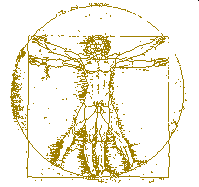In the Ethics, Aristotle describes the role of the moral life in happiness as that of one component among several. Aristotle’s treatment of such commonly perceived components of happiness as pleasure, leisure, friendships, honorable reputation, and secure provision for sustenance, is essentially to summarize them under the heading of external good fortune, which he describes as prerequisite to happiness. The intellectual virtues (e.g. scientific knowledge, skill, prudence, intuition, wisdom) make up what, for Aristotle, is a separate kind of happiness altogether, but one which also has some prerequisites of external good fortune (leisure time is required in order to engage in intellectual pursuits, which leisure is afforded by adequate material wealth, and friends provide the opportunity to deliberate and perfect one’s ideas). After delineating two species of happiness, the moral and the intellectual, Aristotle proceeds to rank them in order of their desirability: intellectual happiness is first, because the intellect is a faculty considered to be shared with the gods, and the moral variety is second, because moral activity concerns only humans, since gods are supposedly immune from the temptations that make a moral character admirable.
In both cases, the intellectual and the moral, Aristotle describes happiness as an activity of the soul, rather than a state of being, with the argument that if it were a state, then a comatose man might possess it, or that the happiness of a man beset by the gravest of misfortunes would be unaffected by them. The potential counterargument that happiness could be a wakeful state or a fortunate state is preempted by Aristotle’s qualification that happiness applies only to a complete life, and not to specific vicissitudes. He further limits the concept of happiness to activities that are pursued only for their own sake, as distinguished from activities pursued, either wholly or in part, for the sake of other ends, because happiness is the highest good of man, and the highest good of a thing is that towards which all its activities are, ultimately, directed.
The “moral life” which Aristotle incorporates in the life of happiness consists primarily in the exercise of moderation in each of the spheres of action and feeling that admit of excess and deficiency. For example, if a man is too courageous, he might risk his life in pursuit of some unworthy goal, or if he is not courageous enough, he might avoid taking action even though the goal be worthy and the risk slight. Each of these extremes constitutes a vice, and virtue is the mean between them. It is important to note, however, that the virtuous mean is the mean relative to the individual and not some mathematically calculable midpoint between extremes. For instance, a strong swimmer would be considered courageous for diving into treacherous water to rescue a drowning person, but a nonswimmer taking the same action would be considered a rash fool. A moral disposition is developed through habituation, learning, and experience toward the end of preparing the individual to take whatever right action may be required of him without impairment due to idiosyncratic tendencies toward one vice or another.
In comparing the roles of moral virtue and good fortune in happiness, Aristotle seeks to reach a conclusion regarding their relative importances by employing the example of Priam, a character of supposedly complete moral goodness who chances onto grave misfortune. If happiness is produced by virtuous activity alone, Priam must then be happy, because no amount of misfortune could corrupt his moral goodness, which, being complete, would always shape his outlook and prevent him from engaging in cruel or hateful action. But, Aristotle notes, no one describes such a man as happy because it is generally recognized that calamity does affect one’s outlook. Following this latter argument, the most that can be said for Priam is that his misery is not complete or utterly consuming. The conclusion reached is that pure happiness must be a combination of complete moral goodness and a sufficient measure of good fortune.
In the modern understanding of moral goodness, it is generally agreed that the human condition does not make available the possession of complete virtue, and even if such a possibility exists, experience shows us that this prospect is rarely if ever realized. But Aristotle describes absolute happiness as consisting of perfect moral virtue in conjunction with an adequate provision of benevolent circumstance. Clearly, this absolute happiness is within the means of few, if any, so that what remains to the majority is not happiness in its perfection, but rather some lesser degree of happiness. Now, if happiness consists in two things – moral goodness and good fortune – presumably there are equal degrees attainable by different means, in the same way that one person might have four apples and five oranges, while another has five apples and four oranges, yet each possesses nine pieces of fruit. The concern of the majority of people, then, must be to determine the most desirable way to achieve some degree of happiness within their means.
If the morally virtuous man can endure the gravest misfortunes without succumbing to misery (whereas, we may assume, the unvirtuous man under the same circumstances would be completely consumed by misery and have no share of happiness), then the happiness implicitly described must admit of degrees. If there are degrees of happiness, what can we say about the unvirtuous man who is not beset with misfortune, but to the contrary meets only the most favorable circumstances? This is the man of whom Thrasymachus speaks in Plato’s Republic; he is the man who maintains only the appearance of virtue, but in so doing receives the rewards that society confers on those it believes to be virtuous (e.g. honor, trust, credit, and the like) although he has no moral virtue and is in reality unworthy of these rewards. If happiness consists of the two components mentioned, and if the man who is virtuous but unfortunate is nonetheless in some measure happy and incapable of complete misery, it would stand to reason that his contrary, the unvirtuous but very fortunate man, would also be happy in some degree and immune to utter despair, because both the former and the latter are in complete possession of one component of happiness and devoid of its complement. From this argument, it would seem that there is no distinction in degree between the happiness of the unfortunate but morally virtuous man and that of the fortunate bad one (although there is clearly a distinction in kind). But even if moral virtue and circumstance are unequally weighted in their contribution to happiness, it is not unfounded to assume that at least some degrees may be reached by varied means. In the case of apples and oranges, even if they are of different values and one man has four dollars worth of apples and five of oranges, while another has five dollars worth of apples and four of oranges, each has nine dollars worth of fruit.
Aristotle neglects to address the question of which of these two ways of life, if either, is the superior. The nearest he comes to addressing this question is his explicit assumption that it is better to acquire happiness by moral goodness than by chance (pp. 80-81).* But the happiness of our unvirtuous yet fortunate man, in the degree that he experiences it, need not be founded solely on chance, even though moral virtue plays little or no part. It does not stretch the imagination that his good fortune may instead be due to clever and calculated actions as a means of maintaining the appearance of virtue, to the end of securing socety’s rewards – the components of his good fortune. And logically, it is more likely for an unvirtuous man to maintain the appearance of virtue by design than by chance, because random, indiscriminate action is less likely to produce a specific desirable result than planned, purposeful action. Therefore, let us resume our discussion of the unvirtuous but fortunate man with the added qualification that he is “fortunate” by design, since this is reasonable.
A factor of supreme importance to the question of which of the two kinds of happiness (if either) is preferable, is the distinction Aristotle draws between moral virtue and intellectual virtue. The morally good but unfortunate man derives his share of happiness entirely form moral virtue, whereas the morally bad man with good fortune whom we have described derives his parcel of happiness from intellectual virtue. It remains, then, to compare the two men on the basis of Aristotle’s own ranking of the two classes of virtue. Aristotle describes intellectual virtue as a divine quality possessible by humans, and moral virtue as a wholly human quality that is of secondary importance in relation to intellect, and he goes on to rank the happiness of the intellectual life as being on a higher plane than the happiness of the moral life. If our present line of argument holds, it leads to the conclusion that the happiness of the immoral man in calculated, favorable circumstance is superior to that of the morally virtuous man of ill fortune. But such a conclusion is untenable in combination with the intuitive, common sense understanding that the moral man, whatever his fortune, simple is better than the immoral man, however clever the latter may be, and that the happiness of the better man is by nature greater than that of the worse. It appears that something has gone amiss.
The Aristotelian premises of the arguments thus far pursued are these: 1) there exists a pure happiness consisting of both moral goodness and favorable circumstance; 2) happiness admits of degrees; 3) there exists another kind of happiness, namely that of the intellectual life, which is distinct from and superior to the pure happiness containing moral goodness. Now, if at least one of these three premises is wrong, as is known from the untenable conclusion we reached in their combination, it is likely to me be most counter-intuitive of the three, specifically, that the exercise of the intellect is a separate and superior happiness (the other two premises are more intuitive, since, taken together, they concur with common sense).
The problem is two-fold. First, although Aristotle describes several species of intellectual spheres of action (e.g. scientific knowledge, art or skill, prudence, intuition, etc.) he defines each of these in such a way that they refer only to morally right uses of their fundamental faculty – intelligence. Aristotle neglects to describe in any structured way what we may term “intellectual vices”, i.e. those uses of the faculty of intelligence that are immoral. Some familiar colloquialisms bring to mind the existence of intellectual vices, for example the proverbial corrupt politician, mad scientist, evil genius, and of course the now-weary phrase, the immoral man of calculated good fortune. This list does not pretend to be exhaustive, but rather is intended to unmask the fact that the exercise of intelligence is a sphere of activity that in itself is neither good nor evil, but becomes so only when coupled with an object and an intent. Second, Aristotle describes numerous pleasures, each relating to the particular faculty which experiences it, but he neglects to place the pleasure corresponding to intelligence within the same structure. He instead misinterprets this pleasure as a distinct kind of happiness, and thus ignores the fact that excessive and deficient uses of the faculty of intelligence relative to the other faculties is qualitatively no different from excesses and deficiencies in the other pleasures. Consequently, the moderation Aristotle so avidly advocates is denied its proper relevance to the faculty of intelligence.
It appears that Aristotle has mistakenly segregated intellect from the many types of action and feeling which he describes as good only when exercised in moderation and with the proper intent, and that he has misnamed as a happiness what is in reality nothing more than intellectual pleasure. Thus, although he proposed a structure of analysis that would accommodate the sphere of intelligence perfectly well as a quality which admits of excesses and deficiencies, Aristotle has failed to place intelligence within that structure, preferring to place it in an extraneous superstructure, and in so doing has relegated the role of the moral life in happiness to an undeservedly secondary position.
* Aristotle, Ethics, Penguin Edition.
Essay
Title
THE ROLE OF THE MORAL LIFE IN HAPPINESS AS SET FORWARD IN ARISTOTLE’S ETHICS
Synopsis
Aristotle misinterprets intellectual pleasure as a distinct form of happiness
Topic
Moral Philosophy
ShortTitle
Moral Life
Date
November 4, 1982
Professor
Charles Larmore
Excellent paper. A+ -- Charles Larmore
|
Illustration2
Illustatration1
GraderQuote
Copyright © W. Murray Sexton. All rights reserved.
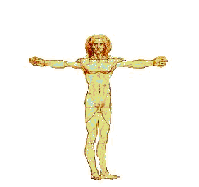

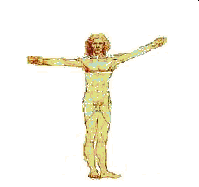
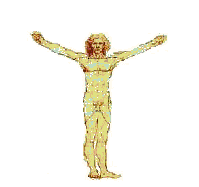
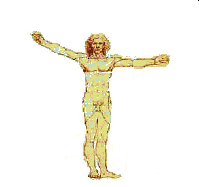

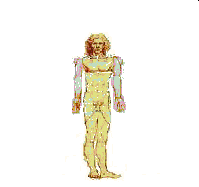

TM
